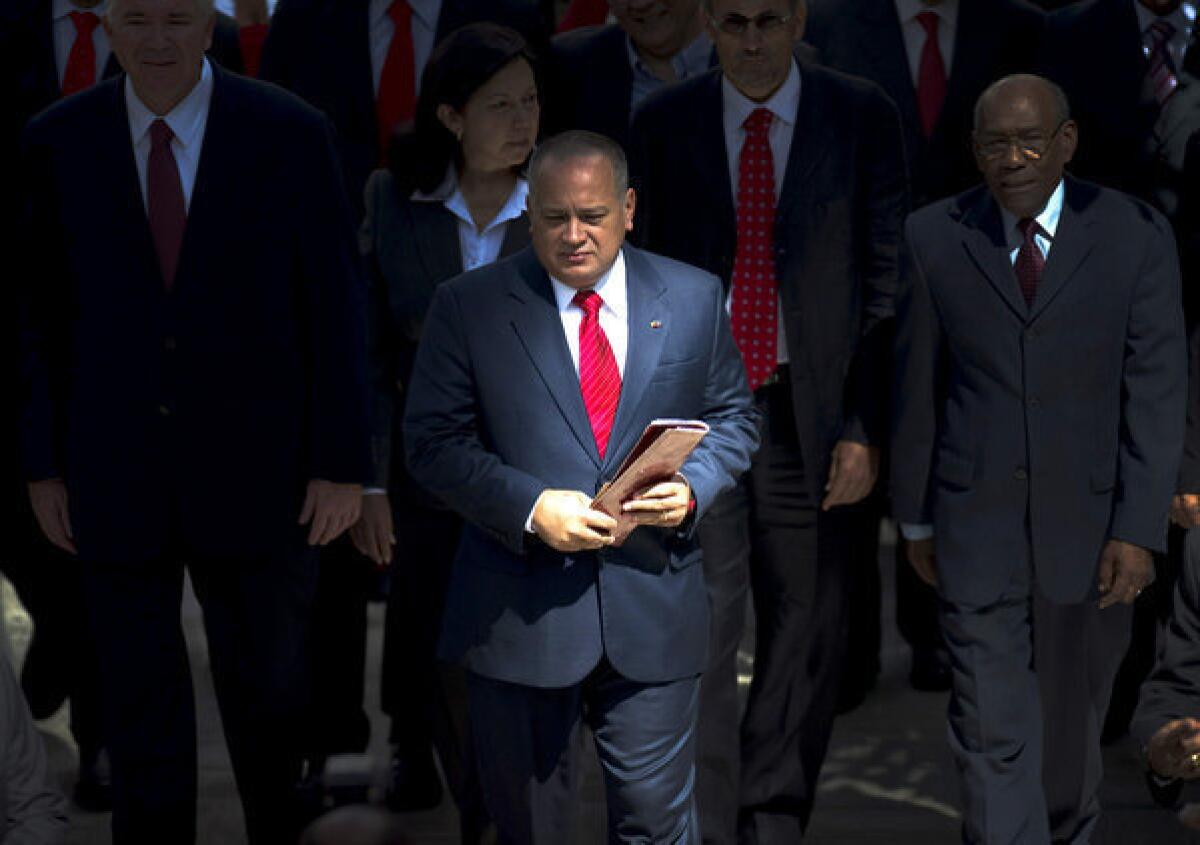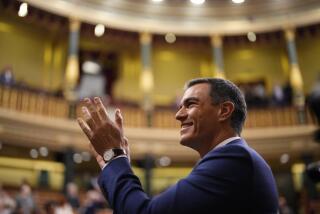Chavez ally reelected to head Venezuela assembly

- Share via
CARACAS, Venezuela -- Diosdado Cabello, a confidant and former army comrade of President Hugo Chavez, was reelected as National Assembly president Saturday, a key position that would make him the leader in any process to begin a new election to replace Chavez should the fiery socialist die or be deemed “permanently incapacitated.”
Chavez has not been seen or heard from since he left Venezuela in early December for Cuba, where he underwent his fourth surgery to treat pelvic cancer. In sporadic and thinly detailed medical updates, officials have said he has encountered postoperative complications including “respiratory insufficiency” that have dimmed the chances of his being present for a Jan. 10 inauguration.
After being returned to his position in the assembly by fellow lawmakers, Cabello said Chavez does not need to be sworn in Jan. 10 to retain his presidential powers because he has permission from the National Assembly to be absent from the country.
“If Chavez isn’t here by Jan. 10, the constitution establishes that he can be sworn in before the Supreme Court, although it doesn’t specify how or when,” Cabello said. “The president received unanimous permission from the assembly to be absent, and that is still in effect.”
Constitutional law expert Carlos Ayala agreed that Chavez can be granted postponements in the oath-taking of up to 180 days in the event he is “temporarily incapacitated.” But he said Venezuelans are entitled to concrete proof that Chavez is alive, is tending to his duties and has a positive prognosis.
“The citizenry has a legitimate right to know the facts surrounding the mental and physical condition of the head of state,” Ayala said. “If he cannot exercise his duties and obligations under the constitution, then that leads to constitutional consequences.”
If Chavez is so ill that he cannot competently carry out those duties, then he must be declared “permanently incapacitated.” That would then trigger a constitutional requirement for the National Assembly president to call a new presidential election within 30 days, Ayala said.
The announcement last week that Chavez was experiencing “respiratory insufficiency” raised the possibility that he is on a respirator or even comatose, which could raise competency issues under the constitution.
Political consultant and commentator Ricardo Sucre said the Chavez government seems to be trying to frame the oath-taking as a “mere formality” that would exempt it from the requirement to clarify the president’s condition and, in a worst-case scenario, start the wheels turning for a new presidential election.
ALSO:
Philippines may end hunt for treasure looted by Marcos
Britain extradites terror suspect to face trial in New York
Indian prosecutors will seek death penalty in gang-rape case
Special correspondents Kraul reported from Bogota, Colombia, and Mogollon from Caracas.
More to Read
Sign up for Essential California
The most important California stories and recommendations in your inbox every morning.
You may occasionally receive promotional content from the Los Angeles Times.













